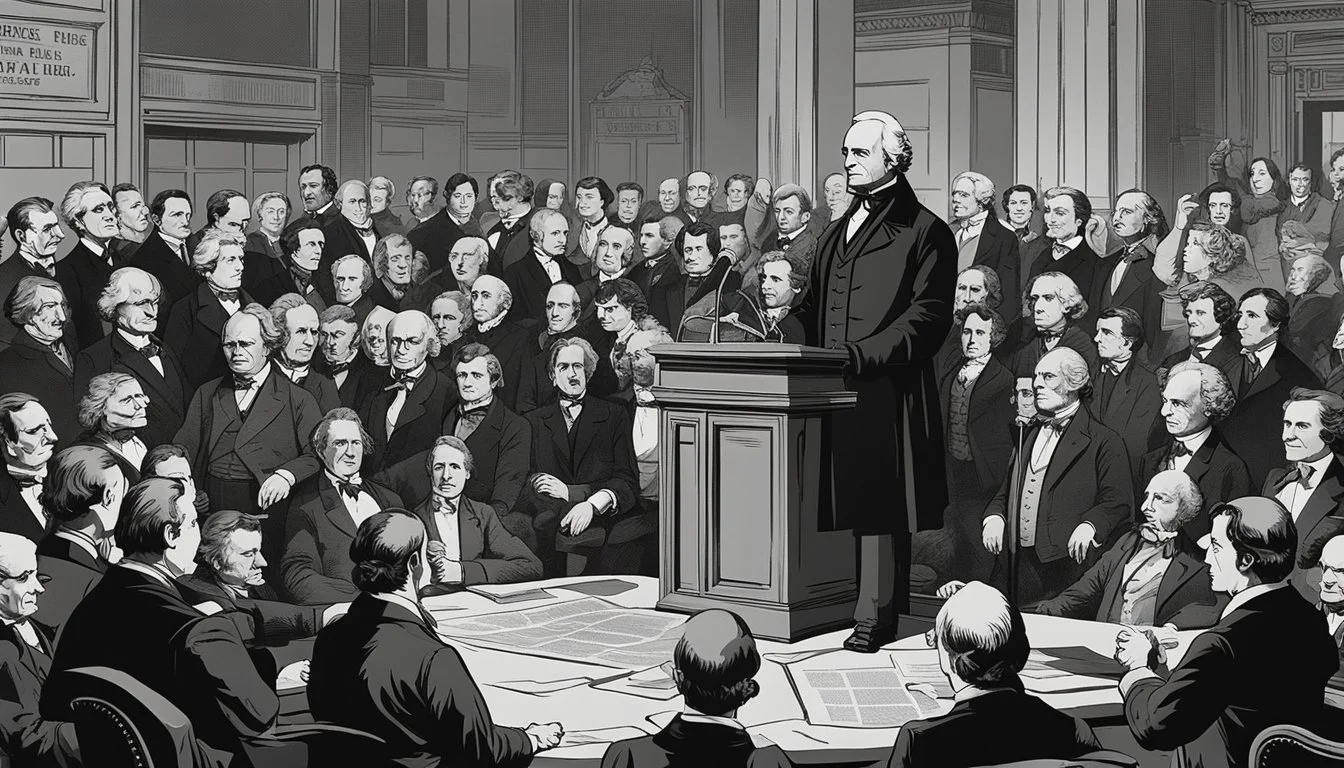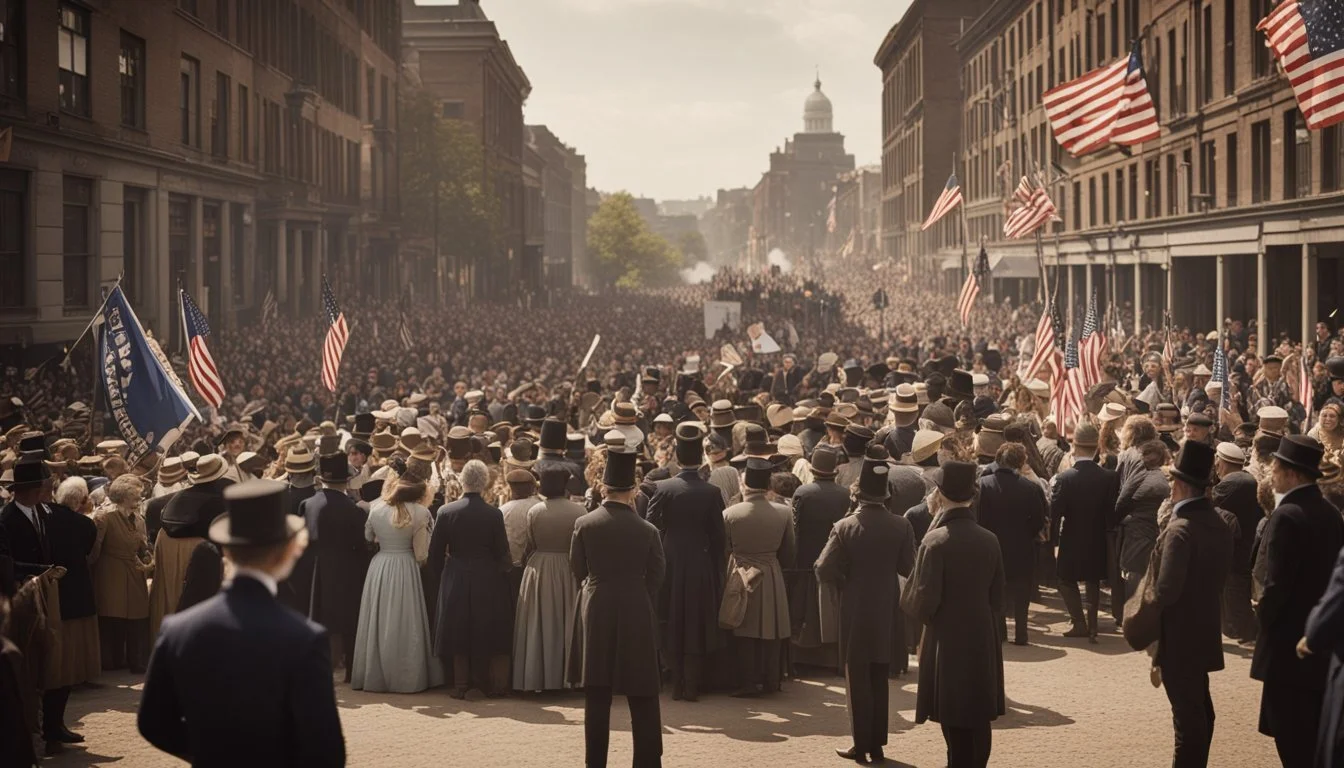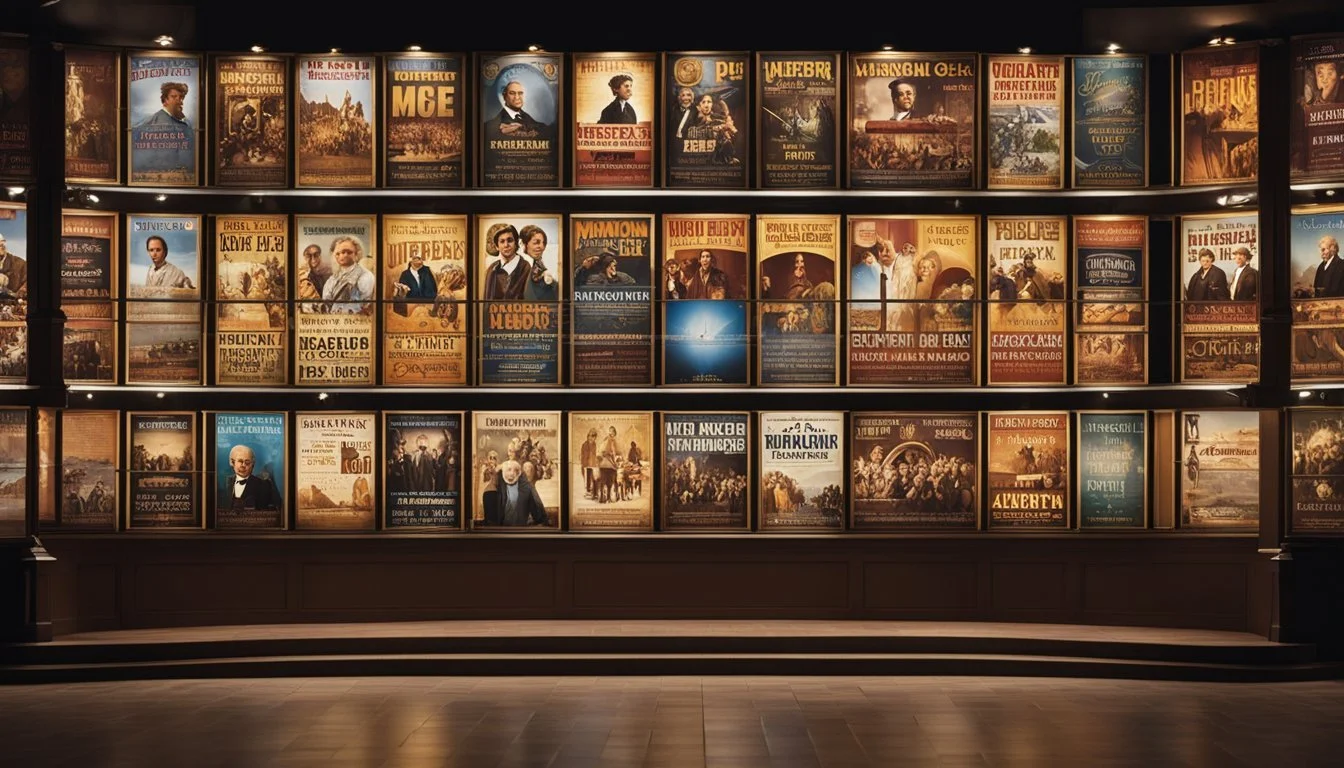5 Lesser-Known Films Detailing Martin Van Buren's Political Rise
Obscure Cinema Explores the Eighth President's Path to Power
Martin Van Buren's ascent to political prominence is a fascinating chapter in American history. From his humble beginnings in Kinderhook, New York, to becoming the eighth President of the United States, Van Buren's journey was marked by strategic alliances and political maneuvering. His influence on the American political landscape extended far beyond his presidency.
While many are familiar with Van Buren's role in shaping the Democratic Party, few are aware of the lesser-known films that explore his political rise. These cinematic works offer unique perspectives on Van Buren's early career, shedding light on the skills and tactics that propelled him to the highest office in the land. By examining these films, viewers can gain a deeper understanding of the man known as the "Little Magician" and his lasting impact on American politics.
1) Van Buren: The Early Years
"The Rise of the Little Magician" (2018) chronicles Martin Van Buren's humble beginnings in Kinderhook, New York. Born in 1782 to Dutch-American parents, Van Buren's childhood is portrayed against the backdrop of post-Revolutionary America.
The film highlights Van Buren's early legal career and his natural aptitude for politics. It showcases his quick rise through local and state offices, demonstrating his skill in building political alliances.
"Albany's Favorite Son" (2015) focuses on Van Buren's role in establishing the Albany Regency. This powerful political machine controlled New York state politics for decades, laying the foundation for Van Buren's national ambitions.
The movie depicts Van Buren's strategic maneuvering and his ability to navigate complex political landscapes. It emphasizes his talent for behind-the-scenes negotiation and coalition-building.
"The Kinderhook Fox" (2019) explores Van Buren's early years in the U.S. Senate. The film portrays his growing influence in national politics and his pivotal role in Andrew Jackson's successful presidential campaign.
More information on Martin Van Buren's early political career
2) The Empire State's Spry Politician
"The Albany Strategist" (2019) portrays Martin Van Buren's early political career in New York. The film highlights his role in the Albany Regency, a powerful Democratic-Republican political machine.
Van Buren's quick wit and strategic maneuvering earn him the nickname "Little Magician" in "Rise of the Red Fox" (2021). This biographical drama focuses on his ascent through state politics.
"Kinderhook's Finest" (2018) depicts Van Buren's humble beginnings and his journey to become New York's Attorney General. The film showcases his legal acumen and political savvy.
"The Senator's Gambit" (2020) explores Van Buren's time as a U.S. Senator from New York. It delves into his skillful navigation of complex political alliances and rivalries.
"Empire State Ascendancy" (2022) chronicles Van Buren's tenure as Governor of New York. The film emphasizes his reform efforts and how this position paved the way for his national political career.
3) Politics in the Blood
Martin Van Buren's political acumen was ingrained from an early age. The 2018 film "The Little Magician" explores this aspect of his life. It portrays young Van Buren's exposure to political discussions at his father's tavern in Kinderhook, New York.
The movie depicts how these early experiences shaped Van Buren's understanding of politics. It shows him observing patrons debating issues of the day and learning the art of negotiation.
"The Albany Regency" (2020) focuses on Van Buren's rise within New York's political machine. The film illustrates his skill in building alliances and managing party politics. It highlights his role in creating one of the first modern political organizations in the United States.
"Red Fox" (2019) delves into Van Buren's nickname and his reputation for political shrewdness. The film dramatizes key moments in his career, showcasing his ability to navigate complex political landscapes.
More information on Martin Van Buren's political career
4) Hudson's Maverick: Van Buren Edition (2019)
"Hudson's Maverick: Van Buren Edition" explores Martin Van Buren's early political career in Hudson, New York. The film depicts Van Buren's move to the city in 1808 and his rapid rise in county government.
The movie portrays Van Buren's strategic maneuvering and networking skills as he builds alliances with local politicians. It highlights his ability to navigate complex political landscapes, even as a newcomer to Hudson's political scene.
A key focus of the film is Van Buren's role in county government and his growing influence in state politics. The narrative culminates with his election to the New York State Senate in 1812, marking a significant milestone in his political ascent.
The film provides insights into Van Buren's personal life during this period, including his marriage to Hannah Hoes. It shows how he balanced his burgeoning political career with family responsibilities.
More information on Martin Van Buren's early political career
5) Young Martin's Political Chess
This lesser-known indie film from 2018 explores Martin Van Buren's early political maneuvering. Set in the 1810s, it portrays the young lawyer's strategic rise through New York's political ranks.
The movie highlights Van Buren's skill in building alliances and navigating complex political landscapes. It showcases his role in forming the Albany Regency, a powerful group that dominated New York politics.
Van Buren's talent for behind-the-scenes negotiation takes center stage. The film depicts his adept handling of rival factions within the Democratic-Republican Party.
Viewers gain insight into Van Buren's pragmatic approach to politics. His ability to forge compromises and build coalitions is portrayed as key to his ascent.
The film also touches on Van Buren's relationship with Andrew Jackson, laying the groundwork for their future partnership. It offers a nuanced look at the political chess game that defined early 19th-century American politics.
More information on Young Martin's Political Chess (2018)
Contextual Background of Martin Van Buren's Era
Martin Van Buren's political career unfolded during a transformative period in American history. The early 19th century saw significant shifts in the nation's political landscape and power dynamics.
Political Climate of Early 19th Century America
The United States was experiencing rapid growth and change in the early 1800s. Territorial expansion and economic development shaped the political discourse. The two-party system emerged, with Federalists and Democratic-Republicans vying for power.
State politics played a crucial role in shaping national agendas. New York, Van Buren's home state, was a key battleground for political influence. The era saw heated debates over tariffs, banking, and states' rights.
Voter participation increased dramatically during this period. Political parties organized grassroots campaigns to mobilize supporters. Public gatherings and speeches became important tools for swaying public opinion.
Key Figures in Van Buren's Political Network
Van Buren's rise to prominence was influenced by several important political figures. Andrew Jackson, the seventh president, became a crucial ally and mentor. Their partnership shaped the Democratic Party's direction in the 1820s and 1830s.
Aaron Burr, though controversial, played a role in Van Buren's early career. As a young lawyer, Van Buren gained valuable experience working on Burr's legal team. This connection provided insights into the workings of national politics.
DeWitt Clinton, governor of New York, was both a rival and influential figure. Their political battles in state politics honed Van Buren's strategic skills. The competition with Clinton's faction helped Van Buren build his own political machine.
Martin Van Buren's network also included lesser-known but influential state politicians. These connections formed the backbone of his support in New York and beyond.
Themes and Messages in These Films
These lesser-known films about Martin Van Buren's political rise explore several key themes. They highlight his strategic approach to politics and depict the social and economic challenges of the era.
Representation of Van Buren's Political Strategies
The films portray Van Buren as a skilled political operator. They showcase his talent for building coalitions and navigating complex political landscapes. His nickname "The Little Magician" is often referenced, emphasizing his behind-the-scenes maneuvering.
Van Buren's role in developing the modern political party system is a central theme. The movies depict his efforts to create a more organized Democratic Party. His use of patronage and party loyalty to maintain power is also explored.
Several films highlight Van Buren's pragmatic approach to politics. They show how he balanced different factions within his party and formed alliances with diverse groups to achieve his goals.
Depictions of Social and Economic Challenges
The economic turmoil of the 1830s features prominently in these films. They often portray Van Buren grappling with the Panic of 1837 and its aftermath. His struggles to address the resulting recession and unemployment are key plot points.
Social issues of the time are woven into the narratives. The films depict debates over slavery, women's rights, and Native American relations. Van Buren's cautious approach to these contentious topics is often a source of dramatic tension.
Class divisions in Jacksonian America are frequently highlighted. The movies contrast Van Buren's humble origins with the wealthy elites he encounters in Washington. His efforts to appeal to both groups are a recurring theme.
Critical Reception and Historical Accuracy
Critics and historians have scrutinized these lesser-known films about Martin Van Buren's political rise, evaluating their portrayal of events and characters. The movies' adherence to historical records has been a key point of discussion among reviewers and scholars alike.
Critics' Views on Depictions of Van Buren
Film critics have offered mixed opinions on the portrayals of Martin Van Buren in these niche productions. Some praise the nuanced performances that capture Van Buren's political acumen and strategic mind. Others argue that certain films oversimplify his complex personality and motivations.
Critics have noted the challenges of bringing Van Buren's era to life on screen. The attention to period details in costumes and sets has generally received positive reviews. However, some critics point out that dialogue occasionally feels too modern, potentially diminishing historical authenticity.
The pacing of these films has been a point of contention. While some reviewers appreciate the focus on political maneuvering, others find the lack of action sequences less engaging for general audiences.
Comparing Historical Records with Film Narratives
Historians have meticulously analyzed these films' adherence to historical records. They acknowledge the creative liberties taken by filmmakers to craft compelling narratives. Some praise the accurate depiction of key events in Van Buren's career, such as his role in establishing the Democratic Party.
Discrepancies between film narratives and historical accounts have been identified. For instance, the portrayal of Van Buren's relationships with other political figures sometimes diverges from documented interactions. Historians note that while these films capture the essence of political dynamics, they occasionally compress timelines for dramatic effect.
The representation of societal issues of the time, such as slavery and economic policies, has been closely examined. Scholars commend efforts to address these complex topics but highlight instances where nuances are oversimplified or overlooked.







